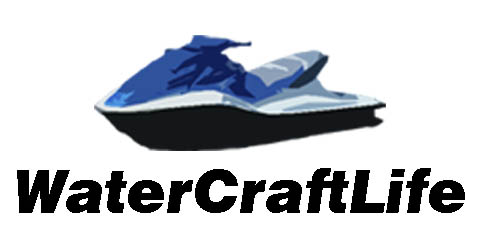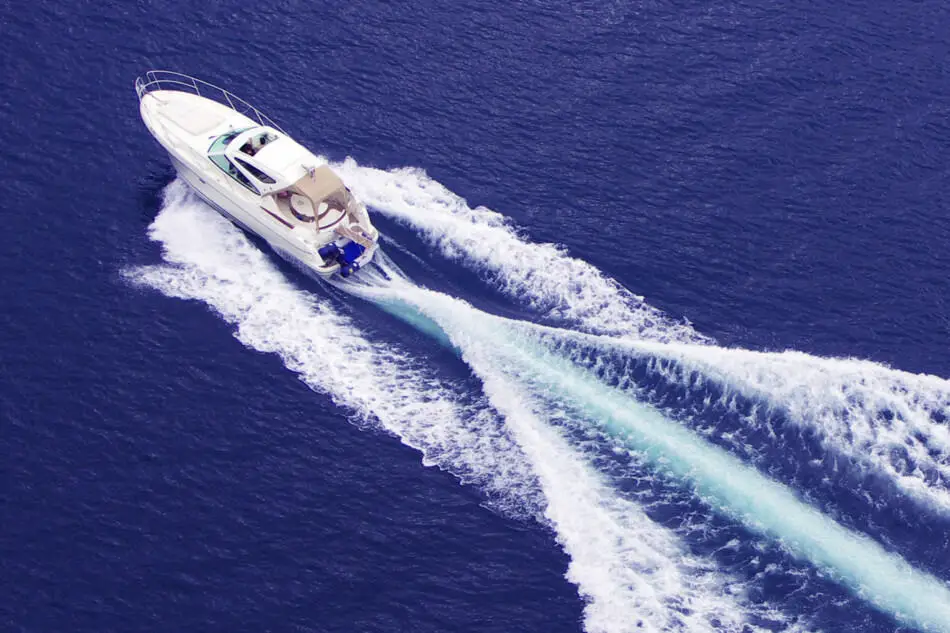A day on your motorboat can be the most fun you have all week. With the sun on your face, the spray at your back, and a cold drink in your hand, you’ll feel like a king. But what happens when things go wrong? It sounds unlikely, but this kind of thing actually can happen. What should you do if your motorboat catches fire?
If your boat motor catches fire, first put on PFD’s. Second, turn off the boat and cut any fuel, then try and put out the fire with a fire extinguisher. Use your judgment, if it is bad or spreading, have your passengers jump into the water and you will need to follow and signal for help.
To put it as conveniently as possible- if your boat motor catches fire you should cut off the fuel to the motor and use a fire extinguisher on the base of the flames. Summon help any way you can.
A motorboat fire can be just as scary and serious as a car fire or a house fire, and you should make sure you know all the steps for if your boat catches aflame before you go boating. Doing so could save your life and your property as well as those of others.
In this article, we’ll go over some of the reasons a fire might break out on a boat, as well as some of the things you should do to keep safe in the event of a fire. We’ll also talk about how to keep calm and collected in the face of such an emergency. So, don’t panic- just get the fire out with these steps:
What to Do if Your Boat Motor Catches Fire
Step One- Put on a Floatation Device
The first thing you should do in the event of a boat fire is have everyone not wearing a Personal Flotation Device (PFD) put one on. You may be confident in your abilities as a swimmer and you may be confident in your passengers as well. But- better safe than sorry. You might have to swim a long way if the fire gets too bad.
Step Two- Move the Fire Out Of the Wind
Next, you’ll want to position your boat so that the fire isn’t blowing onto you. If the wind is blowing the fire toward you, move the boat with your rudder or paddle to get to a better position. If the fire is at the back of the boat, move into the wind. If the fire is at the front of the boat, move with the wind.
Step Three- Cut the Fuel
Step two- one of the most important steps- is to cut the fuel supply to the engine. Having fuel cycling into your engine will only give the fire more materials with which to grow, and it can soon get out of control. Cutting the fuel will prevent this from happening. This includes shutting off your engine as well as turning your fuel off if you have a fuel shut off switch. If the switch is located in the engine bay, it may not be safe to cut the fuel.
Warning: Do not open the engine compartment. Doing this will only give the fire more oxygen and cause it to grow. Also do not turn on the ventilation fan. These will only give the fire more to work with. Your goal is to control it and strangle it.
Step Four- Use a Fire Extinguisher or on board Halon System
Step four is to use a fire extinguisher on the flames. Some boats have an automatic halon fire extinguisher system or a manual pull. You will need to try and put the fire out ASAP. If you only have a fire extinguisher, you’re going to want to use the fire extinguisher in a very formulaic manner to get the best results. Remember to aim the fire extinguisher at the base of the flames instead of just the outside portions. Sweep back and forth when you use the fire extinguisher, getting the whole of the affected area of your ship. Most boats will come with a fire extinguisher, but it is a great idea to carry a couple of portable fire extinguishers just in case the fire is in the location of where you store yours.
Warning: Never, ever use water or flammable fluids such as gasoline or oil to put out a fire. The gasoline and oil are a no-brainer, but water can seem a little strange to some people. It’s the same concept here as when you have a fire in a skillet or a pan. Fire will only move the burning liquid around, spreading the fire to other places.
Step Five- Summon Help with Your Boat’s Radio (Or Other Method)
Even if you have the flames fully extinguished, you should still always summon help after a fire has broken out on your motorboat. It could be that the technical difficulty which caused the fire is still present, which would just mean another, possibly more serious fire. Summoning help will help you make sure you don’t get yourself back into the pickle you just got out of. Use a cell phone, flag, radio or any method to draw attention to you so you can get help.
Alternative Steps:
If the fire has broken out significantly and it is a danger to you or your passengers, jump in the water and swim away from the boat. Your boat will have lots of fuel onboard your vessel and you would not want the fire to make it to your fuel tank which could cause an explosion.
Why do Boat Fires Happen?
Fires can happen for a number of reasons. Keeping these reasons in mind and taking whatever steps you can to keep them from becoming reality will help you keep your boat in good condition and your passengers safe.
For one, you may have mixed fuel, heat, and oxygen. Boat fuel is essentially a very combustible compound that can only undergo a chemical reaction in the presence of a few things- energy and oxygen. In your boat’s engine, the spark plug is the source of the energy that causes these reactions. On an engine, overwhelming heat from an overactive engine can do this.
To prevent this, if you see your heat gauge rising, give your motor a good rest every once in a while while you’re out on the water. Keep your engine compartment closed, and make sure you’re not leaking fuel before you head out. These can all seem like tedious tasks, but they’re worth it to save your beautiful motorboat (which is, as a matter of fact, the best on the water… according to you).
Also, make sure that your ventilation systems are working properly. This helps keep your engine cool and reduces the risk of a fire starting from built up fuel vapors. (This is not required on an outboard motor)
Making sure all of your boat’s systems are working properly is another way to prevent fires. Often, boat fires occur because an alarm or a gas detector wasn’t functioning properly. If it had been working, the driver would have been alerted to a problem. Keeping your systems functioning properly is the best way to keep your engine from bursting into flames.
And finally, don’t keep flammable materials over trouble spots. Things like life jackets over the engine can be especially troublesome. Keeping your boat in the safest possible condition is imperative if you want to boat safely.
Boat Insurance Is a Must Have
In case of fire, having good boat insurance will protect you financially, especially if your vessil sinks. Fuel/oil clean up costs on a sunken boat can become very expensive. Even raising a sunken boat out of the water can cost upwards $10,000 not including any repairs to the boat to get it going again.
The key point is to ALWAYS carry insurance on your boat or PWC when riding. For us, our boat is about $350 per year and two jet skis are about $250, but it is well worth the cost in case of an accident.
How to Stay Calm
Staying calm is imperative to keeping you and your passengers safe in the event of a boat fire. It may seem difficult, considering the imminent danger, but the danger may not be so great as it seems. Just take a deep breath and get yourself in order.
First, you’re going to want to slow down. Yes, you want to act fast. But, there’s a difference between acting fast and frantically reacting to a situation. Think about everything you do before you do it. A second thought in the moment can be the difference between hitting a fire with an extinguisher and throwing water on it.
Secondly, speak calmly and clearly. Don’t shout at your passengers. Just tell them what’s happening, and tell them how to react.
Lastly, realize that you might not be in as much danger as you think you’re in. That fire might be intimidating, but as long as it’s localized to one place and you’ve got an extinguisher on hand, you’ll likely be fine.
Conclusion
In conclusion, if a fire breaks out on your boat, cut off the fuel, get the fire away from you and your passengers using the wind, and hit it with an extinguisher. Call for help afterwards.

